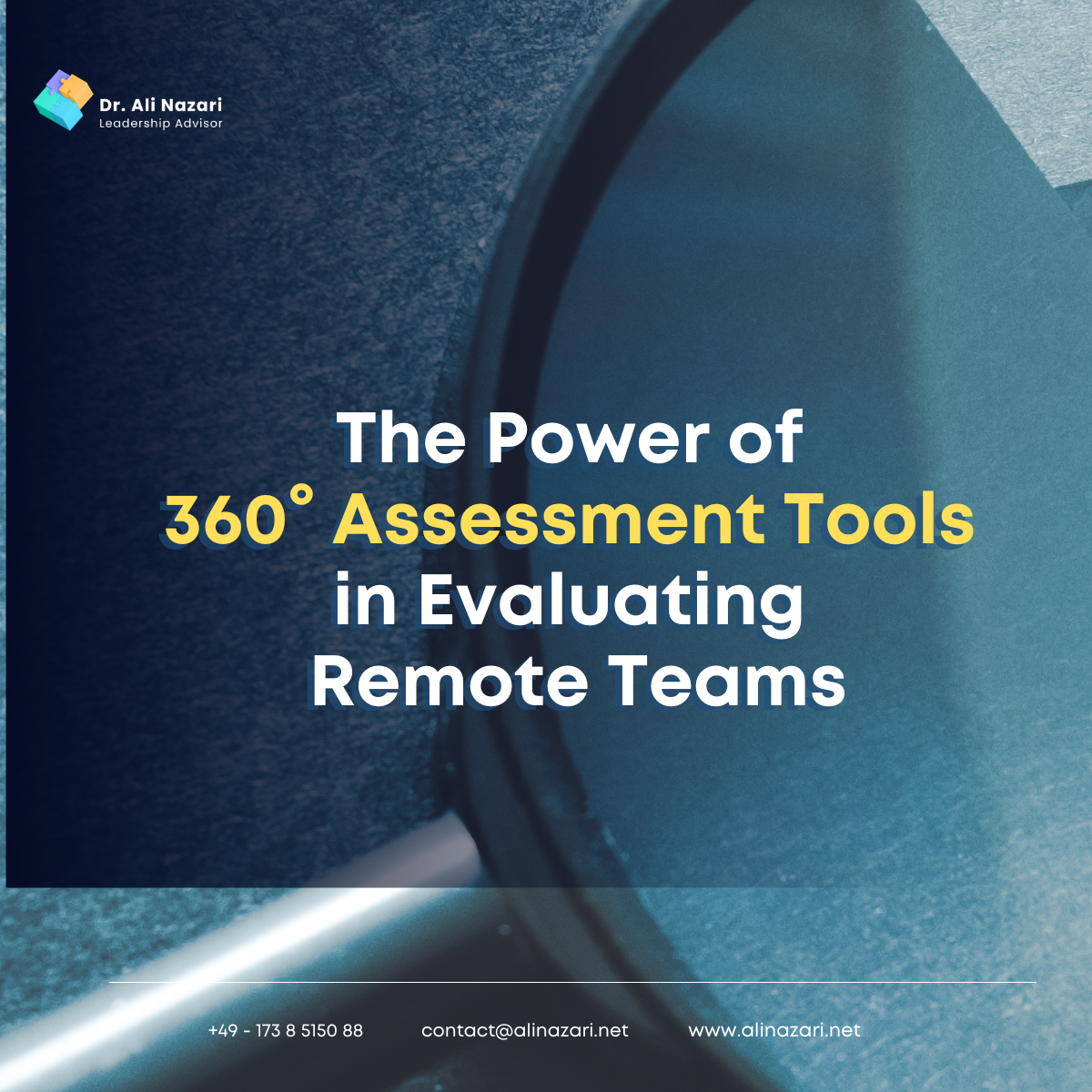In the dynamic world of remote work, understanding the nuances of team dynamics, communication patterns, and workflow efficiency is more crucial than ever. As part of our comprehensive Coordination Mechanism for Agile Remote Teams, the 360° Assessment Tools play a pivotal role in evaluating the current status of remote teams. This phase sets the foundation for targeted interventions and continuous improvement, ensuring that remote teams thrive in a virtual environment.
Why 360° Assessment Tools Are Essential
1. Comprehensive Understanding of Team Dynamics
Remote teams face unique challenges that can hinder their performance if not properly addressed. The 360° Assessment Tools provide a holistic view of how team members interact, communicate, and collaborate. This comprehensive understanding is crucial for identifying specific areas that require improvement.
2. Enhancing Communication and Collaboration
Effective communication and collaboration are the cornerstones of successful remote teams. By evaluating these aspects through our assessment tools, we can uncover communication barriers and collaboration issues that may not be immediately apparent. Addressing these issues early can prevent misunderstandings and foster a more cohesive team environment.
3. Building Trust and Cohesion
Trust is the bedrock of any high-performing team, and it is even more critical in a remote setting. Our 360° Assessment Tools assess the levels of trust and cohesion within the team, providing insights into how these vital elements can be strengthened. A trusting and cohesive team is more likely to succeed in achieving its goals.
4. Promoting Well-being and Job Satisfaction
The well-being of team members directly impacts their productivity and job satisfaction. Our assessment tools evaluate well-being and feedback systems, ensuring that the team members feel supported and valued. This, in turn, leads to higher motivation and reduced turnover rates.
Key Assessment Areas
The 360° Assessment Tools focus on several key areas to provide a detailed evaluation of the team’s current status:
1. Satisfaction and Motivation Evaluation Understanding what drives team members and how satisfied they are with their roles is essential for maintaining high levels of motivation and engagement. This evaluation helps in identifying factors that contribute to or detract from job satisfaction.
2. Teamwork and Trust Evaluation Evaluating the level of teamwork and trust within the team is critical for ensuring effective collaboration. This assessment identifies strengths and areas for improvement in how team members work together and trust each other.
3. Communication and Leadership Effectiveness Effective communication and strong leadership are crucial for guiding remote teams. This assessment area focuses on how well communication flows within the team and the effectiveness of leadership practices.
4. Well-being and Feedback Systems The well-being of team members and the effectiveness of feedback systems are evaluated to ensure that team members feel supported and that their contributions are recognized. This helps in maintaining a positive and productive work environment.
The Process: How 360° Assessment Tools Work
Our 360° Assessment Tools follow a structured process to ensure a thorough evaluation:
Step 1: Satisfaction Level Analysis We start by analyzing the satisfaction levels of team members, identifying factors that contribute to their overall job satisfaction.
Step 2: Motivation Level Analysis Next, we evaluate what motivates team members, helping to tailor interventions that enhance their engagement and productivity.
Step 3: Communication System Analysis We assess the effectiveness of communication systems within the team, identifying any barriers or gaps that need to be addressed.
Step 4: Leadership Effectiveness Analysis Leadership practices are evaluated to ensure they are effectively guiding and supporting the team.
Step 5: Well-being Analysis The well-being of team members is assessed to ensure they feel supported and valued in their roles.
Step 6: Trust Level Analysis We evaluate the levels of trust within the team, identifying areas where trust can be strengthened.
Step 7: Teamwork Level Analysis The level of teamwork is assessed to ensure that team members are working effectively together.
Step 8: Feedback System Analysis Feedback systems are evaluated to ensure that team members receive regular and constructive feedback.
Conclusion
The 360° Assessment Tools are a critical component of our Coordination Mechanism for Agile Remote Teams. By providing a comprehensive evaluation of the team’s current status, these tools lay the groundwork for targeted interventions that enhance communication, collaboration, trust, and well-being. This, in turn, leads to improved performance and a more cohesive, motivated, and high-performing remote team.
For more information on how our 360° Assessment Tools can benefit your remote team, please contact Dr. Ali Nazari at:
📧 contact@alinazari.net🌐 www.alinazari.net📞 +49-173-8515088
#RemoteWork #TeamAssessment #TeamCohesion #EmployeeEngagement #Leadership #AgileTeams #WorkplaceWellbeing

